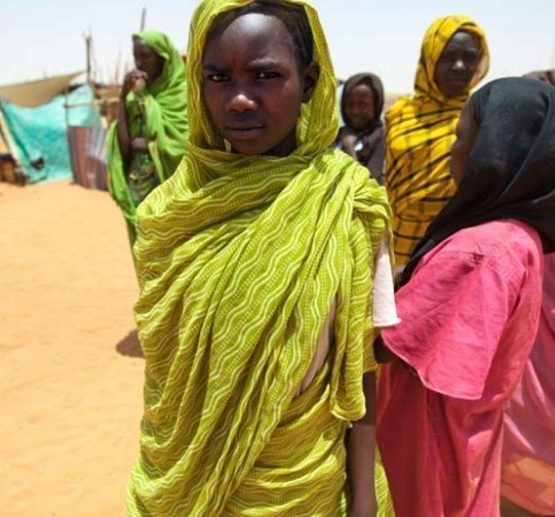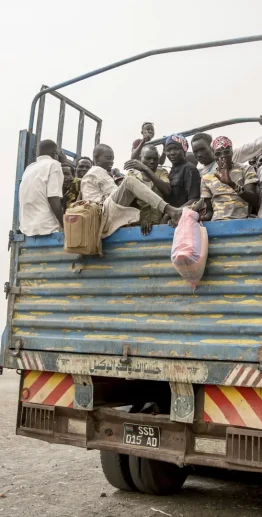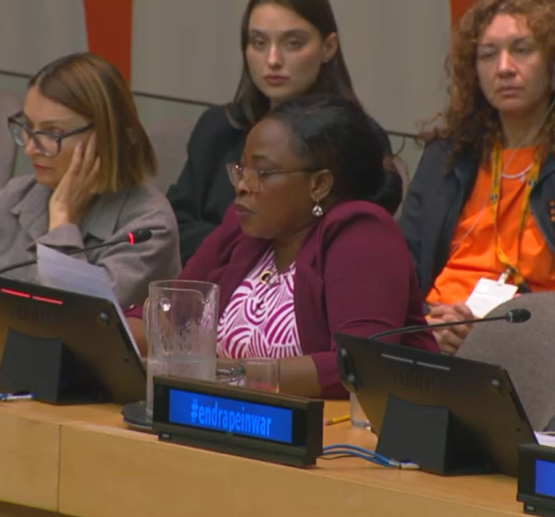International Day of Nonviolence Statement
In commemoration of the International Day of Nonviolence, DWAG would like to condemn all forms of violence, particularly violence against women. As you may know, the historical crisis in Sudan has been characterized by violence and systematic attacks against innocent civilians. For thirty long years, former president Omar al-Bashir has led a bloody regime, responsible for the brutal abuse and genocide against millions in Darfur. Coined by the United Nations as the worst humanitarian crisis of the 21st century, the atrocities in Darfur now persist as a daunting reminder of the catastrophic consequences of violence left unchecked and injustice unaccounted for. The conflict in Darfur has since spilled over to neighboring areas in South Kordofan and the Blue Nile, both areas severely impacted by the detrimental effects of long-term crises.
For decades, the Darfur region has seen political leaders abuse power to promote genocide, war crimes, crimes against humanity, and systematic rape as a weapon of war without repercussions whilst millions suffered from their rule. Violence against women grew and continues to grow in areas like Darfur while the international community fails to address societally-ingrained misogyny. Gender-based violence, including rape, domestic abuse, sexual harassment, and sex trafficking, are utilized to target and demoralize women in their daily lives as a political tool to enforce strict control over women. And despite the recent formation of Sudan’s interim transitional government, millions continue to suffer from the lack of civilian protection and lasting implications from the former regime. Not only are major war criminals like al-Bashir, Ahmed Harun, and Hussein, indicted by the International Criminal Court (ICC) still at large and have yet to face justice, but violence remains rampant across the country, often instigated by the escalation of attacks from armed groups and lead to disastrous civilian casualties.
Yet despite three decades of insistent conflict, the people of Sudan have chosen to resist Sudan’s legacy of violence. The power of the people shone among the crowds, with typically women and youth at the forefront, who chose to participate in a peaceful movement for change in Sudan despite the brutal response by government forces. If anything, their determination of non-violence and ultimate ousting of al-Bashir has proven that nothing more powerful than a unified non-violence movement can change the rule of force.
DWAG, therefore, calls on the interim government of Sudan, the international community, and the United States to ensure that violence against civilians is stopped for good. Accountability of the perpetrators of violence must be prioritized, to ensure the prevention of future violence. Pursuing justice for the victims is a necessity to ensure that impunity for serious violent crimes such as genocide, war crimes, crimes against humanity, and gender-based violence is not an option. Empowerment of the historically excluded, the marginalized, and those subjected to violence is particularly crucial towards ultimately stopping and preventing violence. Promotion of the rule of law, in combination with the building of institutional reforms to progress and improve institutional potential, is extremely essential for countries prone to crisis countries such as Sudan in order to replace the rule of force and promote non-violent mechanisms. The provision of resources for independent civil society is critical to sustaining the efforts of the non-violence movement in Sudan and across the globe.
We stand in solidarity with all who have experienced violence including domestic abuse in the United States and other parts of the world and demand that justice for the victims of all forms of violence. Institutional reform is the best answer to change the course of widespread violence everywhere.
Please join us to stand in solidarity and demand justice.
With gratitude,
Niemat Ahmadi, DWAG President
And the DWAG team



